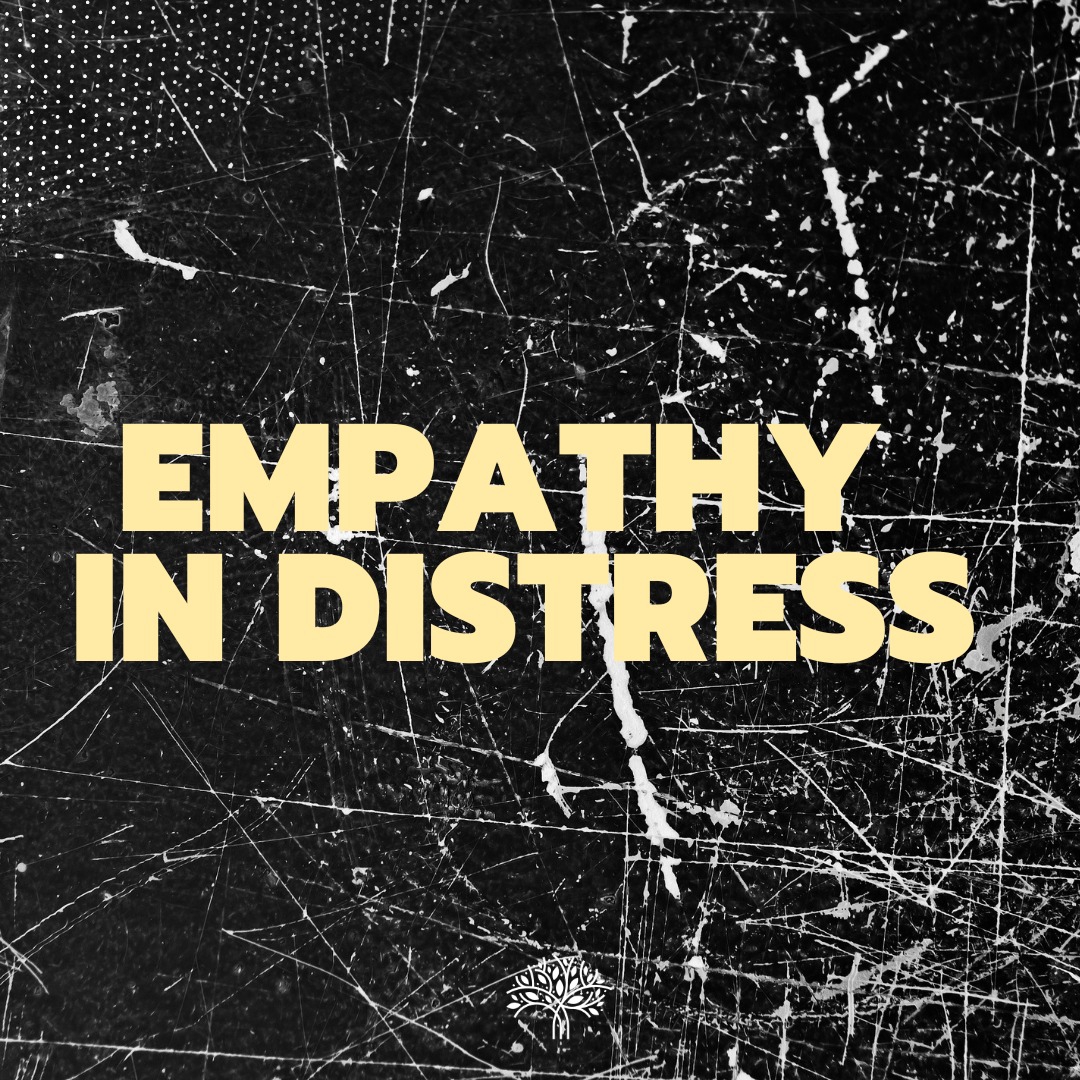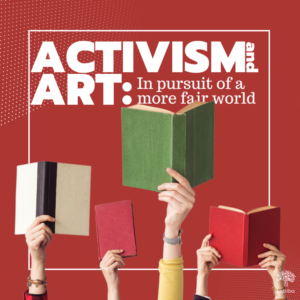By Lydia Alaiadi
As we scroll through the small screens of our phones, we see pictures of hurt people, and many of us scroll really fast, but it’s not for lack of empathy. We see their faces in the news and in videos on the internet. People dying, parents carrying their dead children, and after a while it becomes just another picture, just another story, old news. We see them in their most vulnerable moments, victims of war. They live lives we don’t live, lives we won’t see. What a privilege it is for so many people to wake up in the morning in their homes, with their families, breakfast and internet, safety, a social life, and Christmas shopping that needs to be done.
A frame from a movie
It’s not necessarily that we don’t see these people, but sometimes we forget that we’re the same in so many ways. We see a Palestinian father carrying his dead son, and it looks like a frame from a movie, a different life. Did we forget that these people have stories? That they had good days, that they can laugh, have loved, have dreams, that their story is not just one picture?
If your social media was filled with stories about Gaza protesters taking the streets all over the world demanding a ceasefire, but now the posts for solidarity have become less and less, it is not for lack of caring. Psychologists call it empathic distress: when we hurt for others while feeling unable to help. The reality is that we think that simply reposting something is not going to make a difference, especially in this case, seeing that Israel won’t stop. We see a video asking for donations, and think, what difference will a small donation make? We skip the video and go on to watch something entertaining that will make us forget about the world’s cruelty.
The stories that help us remember
What could really help is stories. Stories have the power to inspire us to do better and to do more. We need storytelling to remember what is happening and why we want to take action.
The Netflix movie The Swimmers is about the real life events of two sisters who had to leave Syria in 2015 for a better and safer future. The story shows their journey from Syria to Germany, during which they have to swim in the Aegean Sea when their refugee boat is about to sink. They walk for miles, get assaulted and separated. In the end, they get to Berlin and go on to live their lives and follow their dreams, but not without losing loved ones and pieces of themselves.
While watching the movie, I kept asking myself why didn’t I do more at the time and why didn’t I care more about what was going on. What can I do now that I know that the Palestinian death toll is close to 45.000 people? I remembered that Netflix had a collection of Palestinian movies, and I thought watching one would help. What I did not know is that in October, Netflix removed all Palestinian films…
Why it matters
Will a post or an article here make a difference? The truth is that, yes, everything makes a difference. I decided to find more stories, not only to learn something new, but to remember why we have to show support and why it matters. I tell my friends to read these stories, to spend at least a few minutes reading stories, not just a few seconds to see a picture.
In 2010, A.S. was just a kid. The Israeli forces came to his house in East Jerusalem, took him away from his parents, questioned him for throwing stones, and then sent him back home.
“When we got to the police station, they took me to Room number 4, and someone questioned me… he wanted me to admit that I had thrown stones that day. At first, I wouldn’t admit to anything. Whenever I looked away, he slapped me. He kept asking me, and I kept denying. He kept blowing cigarette smoke into my eyes. He grabbed my shoulder and squeezed hard, then threw me hard against a wall; my nose began to bleed. I asked for tissue paper to wipe my nose, but he didn’t give me any. Afterwards, someone else did. Then he told me to kneel down; I replied that I only kneel to The Creator. He kicked my right inner thigh. As I sat there, they toasted bread and cheese. They asked if I was hungry, and threw some of the hot cheese on my arm. All along they told me that I had only to admit that I had thrown stones, and they would let me go. In the end, I just wanted to go home, so I admitted to throwing only one stone. ‘One stone, or more?’ they asked, I replied, ‘no, only one stone.’ They asked again, ‘not even a second stone?’ I insisted that it was only one stone. They wanted to know if others had thrown stones with me; I told them I was alone. Finally they took my fingerprints and had me sign some papers — I don’t know what was written there as they were in Hebrew. Afterwards, they let my father take me home.”
Zeinab, Salaj Majjad, Amal, Fatma Saudi, Khader Rhadad, and many others have shared their stories. The following are links with pages dedicated to sharing the stories of Palestinians under occupation. Consider this your guide to remember why we keep talking about this war.
- 50 Years of Occupation
- Doctors without Borders
- Portraits of Palestinians
- ‘Our Death Is Pending.’ Stories of Loss and Grief From Gaza
- Stories of Exile from Palestine
- Testimonies of the Occupied Palestinian Territory
- UNICEF Stories from the State of Palestine
Share the stories
With Asaad now in Moscow, Syria celebrates again after millions of Syrians had to leave their homes. Schools re-opened, thousands of people are coming back, prisoners are set free, and with the revolutionaries claiming they want nothing more than peace, Israel launched hundreds of airstrikes and took Mount Hermon, Syria’s tallest mountain. Greece, the country that first welcomed refugees but then treated them like prisoners, is in talks to buy artillery from Israel.
On December 13th, Israel attacked two more schools in Gaza, actively targeting civilians. The UN General Assembly demands an immediate ceasefire in Gaza and supports the two-state solution. The International Criminal Court issued arrest warrants for Israeli Prime Minister Benjamin Netanyahu and Yoav Galland, former Israeli Minister of Defense, for alleged war crimes. International public opinion supports Palestine, the Middle East supports Palestine, the people support Palestine, the UN supports Palestine, the ICC supports Palestine, and yet, Israel is allowed to grow in power and commit crimes against humanity.
If your friends on social media are not talking enough about what is happening, it is not because they don’t care; they just think it won’t help. Israel is still under little pressure to change. If you want to inspire them again, share these stories cause the war will have to end one day. If you believe in the butterfly effect, you can be easily convinced that one Instagram story might lead to the end of the war. And if you’re not, vote for the good ones in your country’s elections, but make sure that Palestine is in the agenda, and posting about it makes it part of the agenda.




